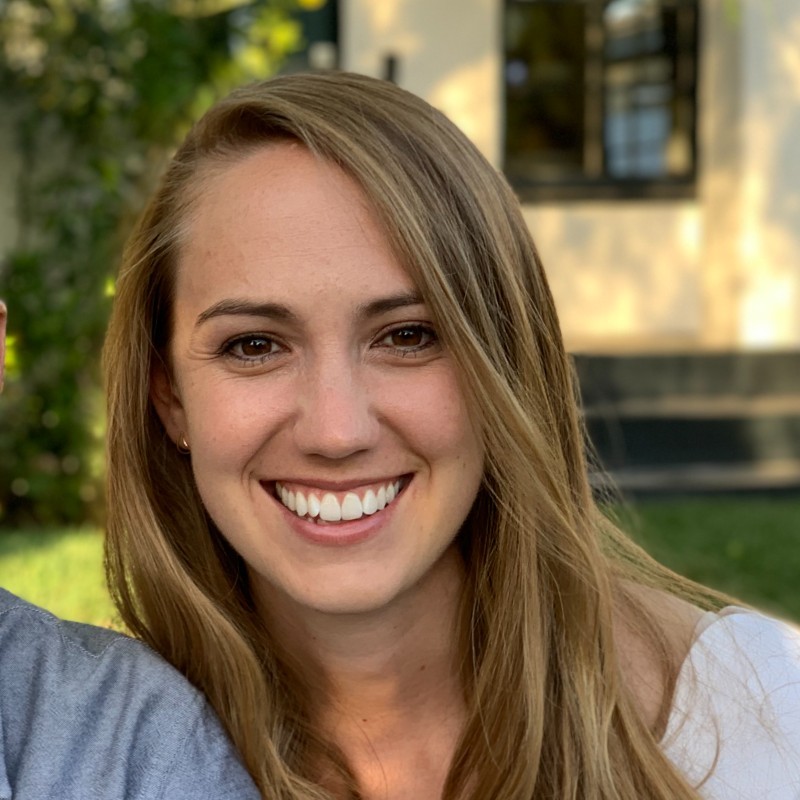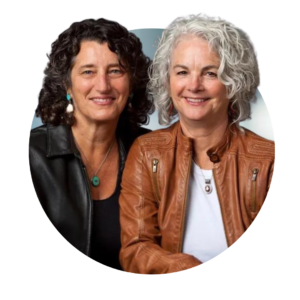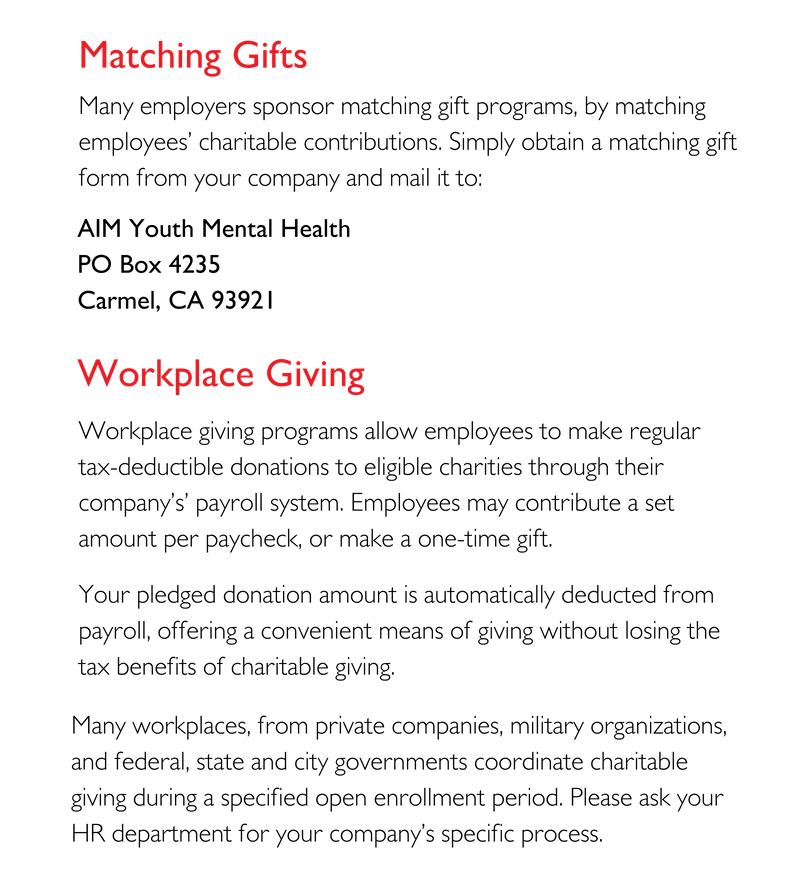Giving Kids Permission to Feel
Keynote Speaker: Marc Bracket, Ph.D., | marc.brackett@yale.edu
Marc Brackett, Ph.D., is founding director of the Yale Center for Emotional Intelligence and professor in the Child Study Center, Yale School of Medicine at Yale University. As a researcher for over 20 years, Marc has focused on the role of emotions and emotional intelligence in learning, decision making, creativity, relationships, health, and performance. Marc is the author of the bestselling book, Permission To Feel (Celadon/Macmillan), which has been translated into 22 languages. Most recently, with Pinterest co-founder Ben Silbermann, Marc and his team co-created the Apple award-winning app, HowWeFeel, that was designed to teach emotion skills and enhance well-being.
Bio: Marc A. Brackett is a research psychologist and the Founding Director of the Yale Center for Emotional Intelligence and Professor in the Child Study Center at Yale University. Brackett earned his Ph.D. in psychology from the University of New Hampshire in 2003, where he was supervised by emotional intelligence scholar John D. Mayer. He was a postdoctoral fellow at Yale University with Mayer’s collaborator, Peter Salovey. Brackett’s research focuses on the role of emotional intelligence in learning, decision making, relationship quality, and mental health; the measurement of emotional intelligence; best practices for bringing emotional intelligence into schools and organizations; and the influences of emotional intelligence training on student and educator effectiveness, bullying prevention, and school climate. He is the author, co-author, and editor of over 125 scholarly publications and the developer of two university courses on emotional intelligence.[citation needed] His most recent book is Permission to Feel: Unlocking the Power of Emotions to Help Our Kids, Ourselves, and Our Society Thrive.
Brackett is the lead developer of RULER, an evidence-based approach to social emotional learning that has been approved by CASEL (Collaborative for Academic, Social, and Emotional Learning). The acronym RULER refers to the five key emotion skills of Recognizing, Understanding, Labeling, Expressing, and Regulating emotions. RULER intends to increase personal wellbeing, effective teaching and leadership, academic achievement, and classroom emotional climate change. An essential aspect of RULER is that it involves training for educational leaders, teachers, support staff, students and families. To date, RULER has been adopted by 2009 schools across the globe, reaching over 1,000,000 students.
Publications
Brackett, M. A., & Kremenitzer, J. P., with Maurer, M., Carpenter, M., Rivers, S. E., & Elbertson, N. (Eds.). (2011). Creating emotionally literate classrooms: An introduction to The RULER Approach to Social and Emotional Learning. Portchester, New York: National Professional Resources.
Brackett, M. A., Rivers, S. E., Reyes, M. R., & Salovey, P. (in press). Enhancing academic performance and social and emotional competence with the RULER Feeling Words Curriculum. Learning and Individual Differences.
Rivers, S. E., Brackett, M. A., Reyes, M. R., & Salovey, P. (in press). Improving the social and emotional climate of classrooms: A clustered randomized controlled trial testing The RULER Approach. Prevention Science.
Reyes, M. R., Brackett, M. A., Rivers, S. E., Elbertson, N., & Salovey, P. (in press). The interaction effects of program training, dosage, and implementation quality on targeted student outcomes for The RULER Approach to social and emotional learning, School Psychology Review.
Brackett, M. A., Patti, J., Stern, R., Rivers, S. E., Elbertson, N., Chisholm, C., & Salovey, P. (2009). A sustainable, skill-based model to building emotionally literate schools. In R. Thompson, M. Hughes, & J. B. Terrell (Eds.), Handbook of developing emotional and social intelligence: Best practices, case studies, and tools (pp. 329–358). New York: John Wiley & Sons, Inc.
Rivers, S. E., & Brackett, M. A. (2011). Achieving standards in the English language arts (and more) using The RULER Approach to Social and Emotional Learning. Reading and Writing Quarterly, 27, 75–100.
Brackett, M. A., Reyes, M. R., Rivers, S. E., Elbertson, N. E., & Salovey, P. (2011). Classroom Emotional Climate, Teacher Affiliation, and Student Conduct. Journal of Classroom Interactions, 46, 27–46.
Reyes, M. R., Brackett, M. A., Rivers, S. E., White, M., Mashburn, A. J., & Salovey, P. (in press). Classroom emotional climate, student engagement, and academic achievement, Journal of Educational Psychology.
Brackett, M. A., Rivers, S. E., & Salovey, P. (2011). Emotional intelligence: Personal, Social, Educational, and Workplace Implications. Social and Personality Psychology Compass, 5, 88–103.
Brackett, M. A., Palomera, R., Mojsa, J., Reyes, M., & Salovey, P. (2010). Emotion regulation ability, job satisfaction, and burnout among British secondary school teachers. Psychology in the Schools, 47, 406–417.
Rivers, S. E., Brackett, M. A., Cook, M., Omori, M., Sickler, C., & Salovey, P. (in press). Emotion skills as a protective factor for risky behaviors among college students. Journal of College Student Development.
Brackett, M. A., Rivers, S., Shiffman, S., Lerner, N., & Salovey, P. (2006). Relating emotional abilities to social functioning: A comparison of performance and self-report measures of emotional intelligence. Journal of Personality and Social Psychology, 91, 780–795.
Brackett, M. A., & Mayer, J. D. (2003). Convergent, discriminant, and incremental validity of competing measures of emotional intelligence. Personality and Social Psychology Bulletin, 29, 1147–1158.
Brackett, M. A., Reyes, M. R., Rivers, S. E., Elbertson, N., & Salovey, P. (in press). Assessing teachers’ beliefs about social and emotional learning. Journal of Psychoeducational Assessment.
Brackett, M. A., & Geher, G. (2006). Measuring emotional intelligence: Paradigmatic shifts and common ground. In J. Ciarrochi, J. P. Forgas & J. D. Mayer (Eds.), Emotional intelligence and everyday life (2nd ed.) (pp. 27–50). New York, NY: Psychology Press.
Brackett, M. A., & Salovey, P. (2004). Measuring emotional intelligence as a mental ability with the Mayer-Salovey-Caruso Emotional Intelligence Test. In G. Geher (Ed.), Measurement of Emotional Intelligence (pp. 179–194). Hauppauge, NY: Nova Science Publishers.



















 Moving Upstream: A Proactive Approach to Addressing Behaviors and Bullying
Moving Upstream: A Proactive Approach to Addressing Behaviors and Bullying Krista Reuther is the Assistant Director of Ohana’s Community Health and Prevention Program. She received her Masters in Public Health and Social Work at UC Berkeley. She comes to this position after 14 years of clinical social work experience at Stanford Children’s Hospital in pediatric oncology, critical care, and bereavement. Her goal is to reduce the incidence of mental illness in children and adolescents in Monterey County.
Krista Reuther is the Assistant Director of Ohana’s Community Health and Prevention Program. She received her Masters in Public Health and Social Work at UC Berkeley. She comes to this position after 14 years of clinical social work experience at Stanford Children’s Hospital in pediatric oncology, critical care, and bereavement. Her goal is to reduce the incidence of mental illness in children and adolescents in Monterey County. Dr. Guss is a 35-year veteran educator with a doctorate degree in Educational Leadership. She served as a classroom teacher for 10 years, including two years as a teacher in a bilingual program in South Central Los Angeles. She has also served as a college professor, mentor teacher for new teachers, and a master teacher for teacher candidates completing their student teaching experience. She continues to be a strong advocate for the teaching profession.
Dr. Guss is a 35-year veteran educator with a doctorate degree in Educational Leadership. She served as a classroom teacher for 10 years, including two years as a teacher in a bilingual program in South Central Los Angeles. She has also served as a college professor, mentor teacher for new teachers, and a master teacher for teacher candidates completing their student teaching experience. She continues to be a strong advocate for the teaching profession. Fellowship: Stanford University School of Medicine (1994) CA
Fellowship: Stanford University School of Medicine (1994) CA Michael G. Thompson, Ph.D. is a consultant, author and psychologist specializing in children and families. He is the supervising psychologist for the Belmont Hill School and has worked in more than seven hundred schools across the United States, as well as in international schools in Central America, Europe, Africa and Asia.
Michael G. Thompson, Ph.D. is a consultant, author and psychologist specializing in children and families. He is the supervising psychologist for the Belmont Hill School and has worked in more than seven hundred schools across the United States, as well as in international schools in Central America, Europe, Africa and Asia.
 is 15 years old and a sophomore at Marina High School in Marina, CA. Her academic interests include math, history, and psychology. She joined the AIM Ideas Lab in 2021 because she wanted to be a part of something that could have a great impact on her community. Marwa is interested in youth mental health because she has always been fascinated with the human mind and she wants to support those that are suffering who may feel like their challenges in life aren’t important enough or are too afraid to seek necessary help.
is 15 years old and a sophomore at Marina High School in Marina, CA. Her academic interests include math, history, and psychology. She joined the AIM Ideas Lab in 2021 because she wanted to be a part of something that could have a great impact on her community. Marwa is interested in youth mental health because she has always been fascinated with the human mind and she wants to support those that are suffering who may feel like their challenges in life aren’t important enough or are too afraid to seek necessary help. Giovanna Panetta is a 16 year old junior at Carmel High School. She has always been called to STEM subjects, specifically biology. The AIM Ideas Lab instantly attracted her attention as a research opportunity. Gia has always comprehended the importance of mental health. She knows that COVID only exacerbated previously existing problems, and that as a community we can try and find the root of those problems. Mental health is an integral part of life, and can impede a body’s ability to be healthy. She strongly believes that life is worth living, and she wants to help anyone that thinks otherwise.
Giovanna Panetta is a 16 year old junior at Carmel High School. She has always been called to STEM subjects, specifically biology. The AIM Ideas Lab instantly attracted her attention as a research opportunity. Gia has always comprehended the importance of mental health. She knows that COVID only exacerbated previously existing problems, and that as a community we can try and find the root of those problems. Mental health is an integral part of life, and can impede a body’s ability to be healthy. She strongly believes that life is worth living, and she wants to help anyone that thinks otherwise. Dr. Friedman completed her undergraduate degree in Psychology from University of California San Diego (UCSD). She went on to complete her masters and doctorate degrees (Ph.D.) in Clinical Psychology from Rosalind Franklin University of Medicine and Science/Chicago Medical School. Dr. Friedman completed her pre-doctoral internship at Rush University Medical Center, Chicago, IL, and her post-doctoral fellowship training at the VA San Diego Healthcare System. Her clinical training and experience has been focused primarily on comprehensive assessment and effective treatments for anxiety, mood and related disorders. Dr. Friedman has extensive experience in providing Cognitive Behavioral Therapies for anxiety disorders (e.g. worry, OCD, social anxiety, phobias and PTSD), depression, adjustment disorders/life stress, insomnia and body-focused repetitive behaviors (e.g. Trichotillomania and skin picking). She has received training in evidence-based interventions for a variety of specific problems, including exposure with response prevention (ERP) for treatment of OCD, Prolonged Exposure (PE) for treatment of PTSD, and Cognitive Behavioral Therapy for Insomnia (CBT-I). Moreover, she has specialty training in the treatment of childhood anxiety and related disorders, such as ADHD, selective mutism, separation anxiety, PTSD, depression and specific phobias. In addition, Dr. Friedman has developed an expertise in research on Trichotillomania and body-focused repetitive behaviors, which has led to numerous local and national presentations. Dr. Friedman regularly attends local and national conferences, training seminars and workshops in order to stay informed on the most up to date treatments and apply state of the art science into her clinical practice.
Dr. Friedman completed her undergraduate degree in Psychology from University of California San Diego (UCSD). She went on to complete her masters and doctorate degrees (Ph.D.) in Clinical Psychology from Rosalind Franklin University of Medicine and Science/Chicago Medical School. Dr. Friedman completed her pre-doctoral internship at Rush University Medical Center, Chicago, IL, and her post-doctoral fellowship training at the VA San Diego Healthcare System. Her clinical training and experience has been focused primarily on comprehensive assessment and effective treatments for anxiety, mood and related disorders. Dr. Friedman has extensive experience in providing Cognitive Behavioral Therapies for anxiety disorders (e.g. worry, OCD, social anxiety, phobias and PTSD), depression, adjustment disorders/life stress, insomnia and body-focused repetitive behaviors (e.g. Trichotillomania and skin picking). She has received training in evidence-based interventions for a variety of specific problems, including exposure with response prevention (ERP) for treatment of OCD, Prolonged Exposure (PE) for treatment of PTSD, and Cognitive Behavioral Therapy for Insomnia (CBT-I). Moreover, she has specialty training in the treatment of childhood anxiety and related disorders, such as ADHD, selective mutism, separation anxiety, PTSD, depression and specific phobias. In addition, Dr. Friedman has developed an expertise in research on Trichotillomania and body-focused repetitive behaviors, which has led to numerous local and national presentations. Dr. Friedman regularly attends local and national conferences, training seminars and workshops in order to stay informed on the most up to date treatments and apply state of the art science into her clinical practice. Dr. Piacentini is a board-certified clinical child and adolescent psychologist and Professor in the UCLA Department of Psychiatry and Biobehavioral Sciences. He directs the UCLA Child OCD, Anxiety, and Tic Disorders Clinic and Tourette Association Center of Excellence which provide diagnostic evaluation and treatment (both therapy and medication) for youth with the above problems. He also directs the UCLA Center for Child Anxiety Resilence, Education, and Support (CARES; carescenter.ucla.edu) which provides education and programming to parents, teachers, and clinicians about anxiety prevention and management.
Dr. Piacentini is a board-certified clinical child and adolescent psychologist and Professor in the UCLA Department of Psychiatry and Biobehavioral Sciences. He directs the UCLA Child OCD, Anxiety, and Tic Disorders Clinic and Tourette Association Center of Excellence which provide diagnostic evaluation and treatment (both therapy and medication) for youth with the above problems. He also directs the UCLA Center for Child Anxiety Resilence, Education, and Support (CARES; carescenter.ucla.edu) which provides education and programming to parents, teachers, and clinicians about anxiety prevention and management. Citlalli Nava is 18 years old and a first year majoring in Psychology at Hartnell Community College in Salinas, CA. She is passionate about understanding how mental health affects how youth think, act, and feel. Citlalli joined the AIM Ideas Lab in 2021 after witnessing the increase in mental health challenges in teenagers and considering the mental health issues they are facing. Citlalli is interested in youth mental health because it is a real problem faced by her generation.
Citlalli Nava is 18 years old and a first year majoring in Psychology at Hartnell Community College in Salinas, CA. She is passionate about understanding how mental health affects how youth think, act, and feel. Citlalli joined the AIM Ideas Lab in 2021 after witnessing the increase in mental health challenges in teenagers and considering the mental health issues they are facing. Citlalli is interested in youth mental health because it is a real problem faced by her generation. Clinical and community psychologist and health care innovator Arthur C. Evans Jr., PhD, is CEO of the American Psychological Association, the leading scientific and professional organization representing psychology in the United States. With more than 146,000 researchers, educators, clinicians, consultants, and students as members, APA promotes and disseminates psychological knowledge to benefit society and improve lives – a mission consistent with Evans’ life work.
Clinical and community psychologist and health care innovator Arthur C. Evans Jr., PhD, is CEO of the American Psychological Association, the leading scientific and professional organization representing psychology in the United States. With more than 146,000 researchers, educators, clinicians, consultants, and students as members, APA promotes and disseminates psychological knowledge to benefit society and improve lives – a mission consistent with Evans’ life work.


